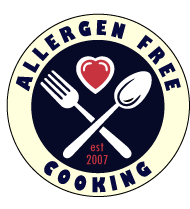Once again, Dr. Mercola speaks the truth to us .....
"The Gut-Brain Connection
When you consider the fact that the gut-brain connection is recognized as a basic tenet of physiology and medicine, and that there's no shortage of evidence of gastrointestinal involvement in a variety of neurological diseases, it's hard to fathom why diet is still so widely ignored by the mental health field.
In a very real sense, you have two brains, one inside your skull and one in your gut.
These two organs actually originate from the same type of tissue during fetal development. One part turns into your central nervous system, while the other develops into your enteric nervous system. These two systems are connected via the vagus nerve, the tenth cranial nerve that runs from your brain stem down to your abdomen.
This is what connects your two brains together, and explains such phenomena as getting butterflies in your stomach when you're nervous, for example. They work in tandem, each influencing the other. And this is why your intestinal health can have such a profound influence on your mental health, and vice versa.
For an interesting and well-written layman's explanation of this, read through Sandra Blakeslee's 1996 New York Times article Complex and Hidden Brain in Gut Makes Stomachaches and Butterflies.
Further evidence of this connection includes the fact that a number of neurotransmitters such as serotonin can be found not only in your brain, but also in your gut. In fact, the greatest concentration of serotonin, which is involved in mood control, depression and aggression, is found in your intestines, not your brain!
Nutrition Affects Your Mood and Mental State
As a result of this connection, it should be obvious that your diet is closely linked to your mental health. Furthermore, it's requires almost no stretch of the imagination to see how lack of nutrition can have an adverse effect on your mood and subsequently your behavior.
As Hartke points out, foods that contain beneficial nutrients for optimal brain function and mood control have been "demonized" in our culture. B3- and protein-rich foods such as raw dairy products, eggs and meat have been more or less blacklisted, accused of being too high in cholesterol and fat.
Hartke also mentions soy, which is frequently recommended as a healthier substitute. Popular soy foods include soy infant formula, which we now know is extremely harmful to infants, especially their brain. Trans fat is another area of concern. According to Dr. Mary Enig, a well-known researcher and scientist, the USDA's dietary guidelines endanger the health of our children."
AMEN!!!

No comments:
Post a Comment
Collective Mind = Solutions